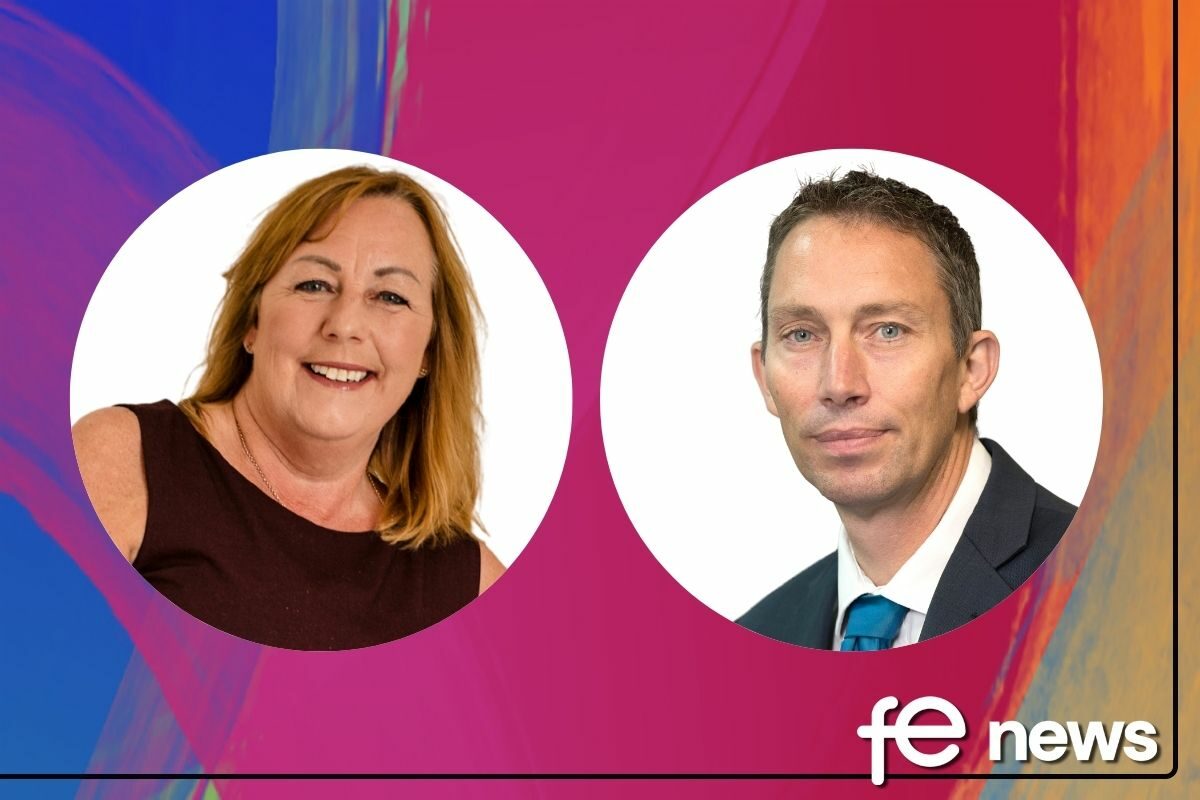“Organisational development has been turbo-charged”

Graham Razey (CEO EKC Group) speaks to Tracey Trotter to give his thoughts on the success and impact of Coaching in the College group.
Tracey Trotter, Leadership Coach and Change Consultant:
I have worked in Senior Leadership roles in Education for 30 years, and always aimed to have a deliberate coaching and nurturing leadership style. I like to think that I developed many people along the way, so it was therefore a logical career step to take to transition into the role of a Leadership Coach. Focusing myself in Education, I noticed what I felt were myths around coaching that linger in the sector, such as a view that it is for underperformers or that it’s too costly. I was absolutely delighted to be approached by Graham to work with East Kent College Group, to show just how powerful coaching can be.
The more I became involved, the more eager I was to understand what had led Graham to build the coaching model for the Colleges and ultimately account for his success within this super challenging role. I thought this would be a great story to share across FE.
You can clearly sense the culture that the leaders work in as they are empowered to take ownership of their development and really feel supported to be the best version of themselves. The knock-on effect can only reap reward as the staff around them also develop, and ultimately it all benefits those at the heart of what we do, the students.
Tell me a bit about your career. Can you recall any key moments or key people who coached you to believe you would be so successful
Whilst I could simply give you a run down of my CV, you could just as easily get that from LinkedIn, so I’d rather focus on the formative experiences I’ve had, and some of the biggest figures in my life. Becoming a Principal for the first time was a really important moment, and one of those times when you feel this huge mixture of excitement and achievement, but also real trepidation. At the time I was lucky enough to have a very experienced Chair of the governing body, Professor Michael Wright. He was outstanding in the role, and managed to really grow me into it over the first couple of years of my tenure. It was also Michael who really got me engaged in strategy and strategic thinking in a way I’d never been before, and his coaching of me laid the groundwork for the development of our Group. Without his coaching, there’s no doubt in my mind it would have taken longer for our Group to become so successful.
And whilst it may sound slightly contrived, another absolutely huge influence in my professional life is my father. He had taken a vocational pathway when he was younger, and become a master craftsman. It was him who really introduced me to what outstanding technical skills means. I didn’t choose to follow in his footsteps into a trade, instead becoming the first in my family to attend university, but I did take a huge amount from what I saw when I was growing up. His passion for his trade is something I’ve always wanted to ensure is instilled in all of our learners, because it’s that kind of value set that I’m proud to have grown up with. In terms of leadership, my early approach came predominantly from my many years of playing team sports, often being the captain (something about being tall). I believe that the sum of the parts is much more valuable than any individual. I enjoy cultivating teams and am very competitive.
What do you put your personal success down to?
There are a number of things which have helped me to succeed through the years. From the fact that I’m very conscientious, with a strong work ethic, to my enduring belief that collaborative working and partnerships are the backbone of a strong group.
However, what guides every decision I make, is whether it’s right for the communities (and in particular our students) our Group serves. Sometimes we’ll fail in initiatives on a purely commercial basis, or with new course provision, but it doesn’t mean it wasn’t right to try, if it’s the right thing to do. Whilst that’s likely to limit my personal success in some ways, I think that the work we deliver for the communities our Group serves is more important than one person, and I think that ultimately it has led to our continued overall success across our Group. So, in that sense, I put my personal success down to always trying to do the right thing, no matter how hard that might be.
How have you focused on your own personal development?
I am absolutely passionate about lifelong learning. As an educator, you’d expect me to say that, but I’m passionate about not only growing myself, but others around me. Ever since I was a boy, I’ve played many team sports, and once it became clear I wasn’t likely to become a professional sportsman, I also took on coaching responsibilities. It was through that sports coaching that I found my love of coaching in my professional setting as well. Whilst I’ve taken professional coaching courses, and am currently doing a Level 7 in coaching, I think the thing about it that has grown me the most are the conversations I have with those I’m coaching. Investing that time in growing the next generation of Principals and Chief Executives brings me a real feeling of achievement, and there’s little better than when I’m able to coach them through a big problem or challenge they’re facing.
Looking at EKC Group, what were the issues before restructuring?
A senior team that was unclear about accountability, authority and agency. There were also gaps in the succession plan which were in need of filling to ensure the long-term sustainability of the organisation.
What was the intention when restructuring leadership?
Ultimately, we needed to deliver a model which would allow our senior leaders to grow and develop in order to ensure succession planning was available. I also wanted leaders to have the ability to truly own their technical expertise.
What is impact that you are looking for?
Better performing services that offer improved delivery for staff and students across our Group.
You have adopted a coaching model, how has this supported the organisational development?
All of the deep technical expertise for our services is concentrated within our Tier 3 leaders. There’s no doubt that they are the experts in what they do. This means that very few within our Tier 2 team are able to match our Tier 3s in terms of that technical knowledge, so to me it made very little sense to try and get them to lead areas and line manage services. Instead, I felt that adopting the coaching model would allow those Tier 3 leaders the space they needed to work through problems themselves, but with the guidance that a good coach can offer. We’re reaping the benefits of this already, with our Tier 3 team feeling more empowered to deliver against their objectives, but with the support that a coach is able to provide. This has all meant that organisational development has been turbo-charged, with coaching delivering a transformative impact across the Group.
Tell me about some of the results you have seen. What is the impact for other staff and the students?
The movement toward a coaching model has allowed our team to be the experts in their field. This has meant they have been able to make the changes they need at a faster pace, owning the decisions and taking greater responsibility for their areas of operation. Ultimately, this is making life better for both staff and students across the Group, with an enhanced customer service.
How might this impact recruitment and retention of senior leaders and all staff?
I believe that a coaching model can unleash the potential of a senior leader, ultimately giving them the agency they require to really do their job to the benefit of their line reports and other staff and indeed students within the organisation. It is my view that we’ll see retention improve significantly as we allow our technical experts to be the leaders in their field. I would also like to think that it will enhance recruitment as word slowly gets around that our Group empowers and strengthens its leaders, rather than trying to restrict them.
How did you source the coaches?
Through connections that I had in both the education and business world. People that I respect not only professionally, but personally were invited to join us in developing this approach.
How much as the investment cost, relatively?
In my opinion the investment cost was cheap at twice the price! Whilst that remark may sound a touch flippant, it’s really a very genuine feeling. Creating a high-performing senior team that’s equipped to tackle the challenges a large FE group faces is not a simple thing to do. And yet coaching has set us on this pathway, so it really has been worth the investment in not only money, but also time. For a relatively small sum (much cheaper than an annual senior leadership development programme) our leaders are receiving 1:1 support and development.
What next…….?
As we have only recently adopted the model, I’m confident we will continue to see growth in the medium term. The coaching model is an outstanding start to really developing the next generation of empowered leaders in this Group, and I have high hopes for it moving forward. Although we are only using coaching for our senior leaders, it is my hope that this technique can be cascaded in the future, helping to ensure that other colleagues are also growing and developing in the same way.
By Graham Razey, CEO, EKC Group, and Tracey Trotter, Leadership Coach and Change Consultant











Responses